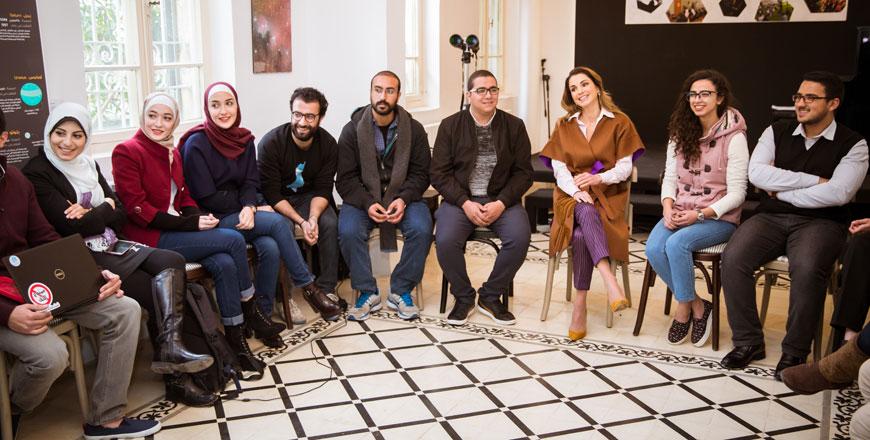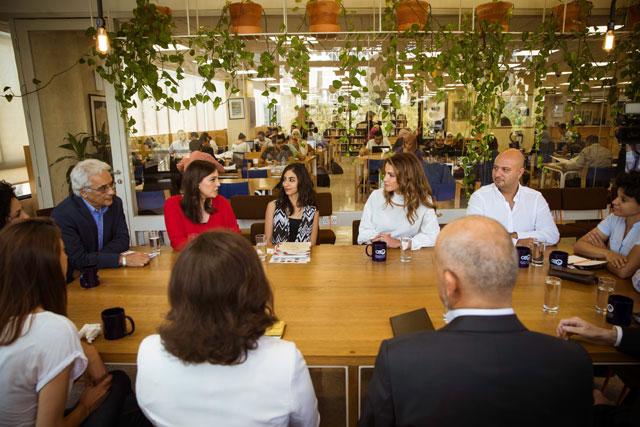You are here
Infrastructure vital to promote culture of scientific research among youth — experts
By Dana Al Emam - Aug 26,2017 - Last updated at Aug 26,2017
AMMAN — There is a need for further collaboration between the public and private sectors to establish the infrastructure necessary to promote a culture of scientific research among the younger generations, experts agreed on Saturday.
Speaking at a plenary session in Phi’s Research and Innovation Summit, experts said that, because students do not have sufficient knowledge of the importance of conducting scientific research or of the existing opportunities in this field, they are prevented from tapping the limited available opportunities like scholarships.
However, they noted that the impact of scientific research will remain limited as long as it is not considered a national priority and keeps receiving little attention and financial allocations.
The Abdul Hameed Shoman Foundation (AHSF) CEO Valentina Qussisiya said the fast-changing nature of the job market and the skills it requires entitles students to acquire fundamental skills such as creative and critical thinking and scientific research, in order to adapt and excel.
She reviewed a number of AHSF programmes that seek to fill these gaps for students in various age groups, adding that three projects created last year by students aged between 10 and 13 enrolled in an innovation club were registered as patents.
The problem is not students’ incapability to innovate, but an educational system that “does not support innovation and the lack of institutions working in parallel”, she added.
Creating and sustaining scientific research efforts has to be based on a strong infrastructure that includes institutions with merit-based hiring processes, a free environment for open discourse and criticism, accountability and the rule of law, said Laith Abu Rabbad, a professor of healthcare policy and research.
In the ongoing “war for talent”, the high demand for specialised people in all fields, including science, requires improving the quality of education at all levels in order for graduates to compete in the global labour markets, he added.
For his side, Ahmed Sakhrieh, a professor of mechanical engineering, said students who are genuinely interested in scientific research will find their ways to excel and find suitable funding opportunities and competitions.
Yet, universities do not play a systematic role in this process, he said, adding that some professors show personal interest in directing their students towards research opportunities.
He attributed the lack of interest among many students to the fact that they do not follow their passion when selecting their field of study, as they fall under the pressure of their families when they select “prestigious” disciplines.
The Phi summit is a gathering of young Jordanians and Arabs that are passionate about creating an Arab scientific revolution, a neo-renaissance era in the fields of science and scientific research, according to the Phi Science Institute.
The two-day event, which concluded on Saturday, witnessed the participation of 25 speakers and 500 attendees, and featured a number of workshops and sessions, as well as a scientific competition.
Related Articles
AMMAN — Ahmad Jadallah, a medical student at the Hashemite University, said his seventh grade science teacher “did not teach students proper
AMMAN — Her Majesty Queen Rania met with members of the Phi Science Institute in Amman on Monday to learn about its efforts in promoting inn
AMMAN — Her Majesty Queen Rania on Tuesday visited the Abdul Hameed Shoman Foundation (AHSF), where she was introduced to the foundation’s v














